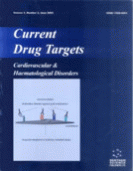Abstract
Diabetes mellitus is a complex metabolic disorder that is represented with a defect in insulin secretion and insulin action. Diabetic nephropathy is a well-known complication of diabetes that occurs in 20% to 40% of the diabetic population. Kidney failure is categorized into acute and chronic renal disease. Acute renal disease may origin rapidly which is reversible. Chronic kidney disease develops in a slow manner at least three months of duration which leads to cause kidney failure. The permanent damage to the kidney cells by the multiple risk factors that result in loss of renal function which leads to cause renal failure. Chronic renal failure is a well-established risk factor for developing cardiovascular disease complications. Renal failure patients may develop ten to twenty folds risk of developing cardiovascular disease. Dialysis is performed to normalize the health condition of chronic renal failure patients. The progression of kidney failure with cardiovascular disease has been associated with various risk factors such as obesity, hypertension, diabetes, smoking, and alcohol enhances the risk of cardiovascular disease with renal failure. The chest x-ray, electrocardiogram, echocardiogram, coronary angiogram, urine culture test, MRI scan, CT scan, blood test, renal biopsy, fasting blood sugar, random blood sugar, serum creatinine, creatine clearance, uric acid, total proteins, glomerular filtration rate was used to detect the severity of cardiovascular disease in diabetic nephropathy. Early identification of causative factors detection and effective prescribing practice of blood lowering medications, statins, hyperlipidemic drugs, diuretics, and erythropoietin drugs can improve the health outcomes of cardiovascular disease in diabetic nephropathy patients.
Keywords: Acute Renal Disease, Chronic Renal Failure, Diabetes Mellitus, Dialysis, Hypertension.






















